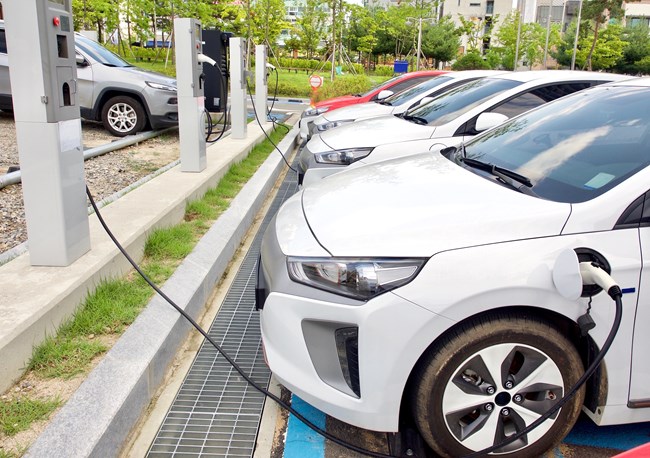We use cookies to ensure that we give you the best experience on our website. If you continue without changing your settings, we will assume that you are happy to receive all cookies on the Business Car website. However, if you would like to, you can change your cookies at any time

The start point for the best source of fleet information |
EV charging becoming most time-consuming area of fleet management, AFP says
Date: 12 June 2023 | Author: Sean Keywood

EV charging is replacing maintenance as the most onerous day-to-day managerial task facing many fleets, according to the Association of Fleet Professionals (AFP).
The organisation's chair, Paul Hollick, said feedback from members was that charging was taking up huge amounts of time, as they sought to maximise operational efficiency and minimise costs.
He said: "In the last few years, maintenance has been the main everyday issue facing fleet managers. The fleet car and van parcs have been ageing at a fairly rapid pace while workshop capacity has been stretched and parts availability has been patchy.
"However, we now seem to be in a position where charging is taking over and there's a wide variety of reasons for this.
"It's not an exaggeration to say that charging is becoming the new maintenance in terms of the huge amount of attention it demands."
Hollick said that the issues being encountered were wide-ranging, and that often there were no easy fixes, with temporary solutions being employed.
He said the biggest problems were being seen by fleets whose drivers had no access to home or depot charging.
Hollick explained: "This means they are relying on the public infrastructure which, in its current state, presents a whole series of difficulties that fleet managers and their drivers are working to resolve every day.
"The first of these is simply accessibility. That means finding chargers where they are needed, hopefully not having to queue, and also ensuring that the bays are large enough to take electric vans. Ticking these three boxes on a day-to-day basis is proving demanding for many of our members at this point in time.
"Of course, there is also a desire to minimise the cost of charging which, especially on motorways, can be prohibitive, but that is the fourth factor on the list for most fleets. The important thing is to keep EVs moving."
Hollick said that although the situation may improve as charging infrastructure developed, it was still likely to persist for several years to come, and there was not much prospect of things improving for fleets in the medium term.
In addition, he said that even where EV drivers had their own charging facilities, there were still problems.
He said: "There are other problems. For example, reimbursement is proving an issue, especially with the Advisory Electric Rate remaining too low for the majority of EVs and the actual cost alternative being quite difficult to calculate. Technical solutions are emerging for the latter but obviously have not yet been approved by everyone.
"There is also the question of who should pay for installation of home chargers although, at the AFP conference, credible figures were quoted showing that the cost can be recouped by employers in a matter of a few months through the savings in charging costs, so that decision should be relatively easy."











